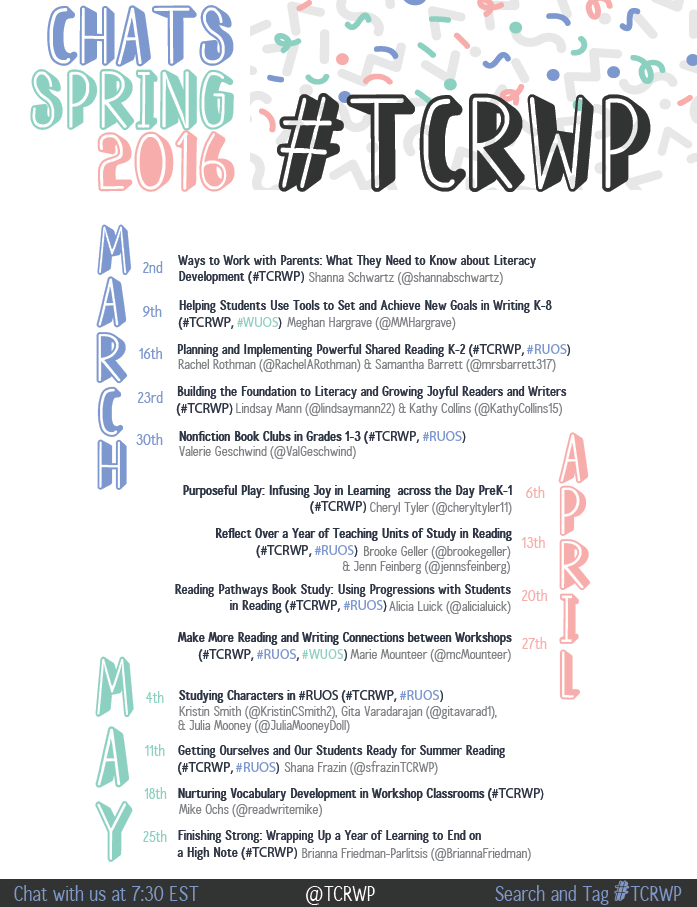By Anna Gratz Cockerille
Consider for a moment your favorite fiction books. Perhaps while you were reading these books, you followed the plot closely, hanging on the edge of your seat as you read on to find out what peril, joy, mystery, or heartbreak would come next. But when you think now of your favorite books, it could be that you find it difficult to recall all of the plot’s twists and turns. But you remember the characters. You think of them as you think of old friends, with their nuances, insecurities, desires, and dreams. After all, it is the characters, really, who invite us to fall in love with books and who linger far after we’ve read the final words.
This is also true for our students. Their sympathy and affection for Wilbur and their awe of Charlotte will help them to remember Charlotte’s Web, forever. Getting to know characters deeply has benefits beyond greater engagement in books. As Julia Mooney and Kristin Smith, moderators of tomorrow’s chat, write in their third grade book in the Reading Units of Study, Character Studies: “Walking in the footsteps of characters in stories makes us more empathetic and more sympathetic, not just to fictional characters but to the people we meet in the world and to ourselves” (p. vi). Characters give students a way to experience complex responses like grief, joy, embarrassment, guilt, and gratitude so that they are more adept at handling these responses when they arise in their own lives and more empathic when they see others experiencing them.
In their delightful unit, Julia and Kristin take readers on a journey to get to know the characters in books more deeply. The work that they channel kids to do will stand them in good stead always when they approach any work of fiction. Here is just a sampling of the important learning in this unit:
- Readers observe characters deeply and come up with ideas about why the characters are a certain way.
- Readers investigate patterns they notice characters repeating.
- Readers develop theories about characters based on analysis of characters’ traits and motivations.
- Readers compare characters from book to book and use commonalities to develop understanding of life lessons and universal truths.
Gita Varadarajan joins Julia and Kristin as a moderator of tomorrow’s chat. Gita knows a thing or two about characters. She recently published Save Me a Seat with Sarah Weeks, a novel aimed at grades 3–7. It is a strongly character-driven book about two boys with very different backgrounds who discover they have more in common than they think.
Join Julia, Kristin, Gita, and the TCRWP community tomorrow to chat about all things character. We invite you to share photos of charts or other tools you use to help readers to get to know characters more deeply.
Each Wednesday night at 7:30 p.m. eastern, The Teacher's College Reading and Writing Project hosts a Twitter chat using the hashtag #TCRWP. Join @JuliaMooneyDoll, @KristinCSmith2, and @GitaVarad1 tomorrow evening to chat about studying characters in Reading Units of Study.
♦ ♦ ♦ ♦
Anna Cockerille is a staff developer, literacy coach, and writer based in New York City. She has taught in K–8 classrooms all over the world in places such as Sydney, Australia; San Pedro Sula, Honduras; and Auckland, New Zealand. Anna has been a staff developer for the Teachers College Reading and Writing Project at Columbia University (TCRWP) and an adjunct instructor for the Literacy Specialist Program at Teachers College. She writes at Two Writing Teachers.
Not on Twitter? New to Twitter? Take Heinemann’s free Twitter for Educators course here.



